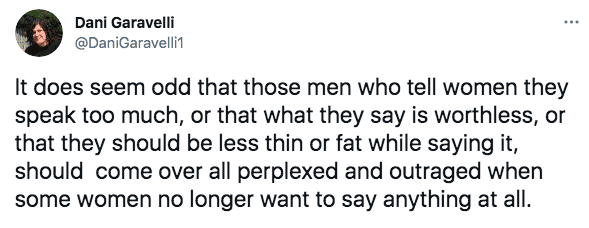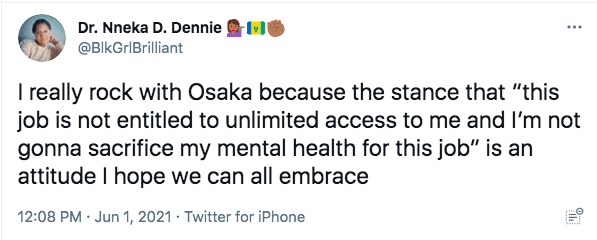What we can all learn from Naomi Osaka’s perfectly reasonable decision to prioritise her mental health and why we all need to learn our boundaries.
I’m so tired of writing about mental health, because I am so tired of my own patchy mental health and yet, we remain in a work-hard, play-never, pandemic-filled world, so here we are. These chats aren’t going anywhere and if the ever-increasing wait times for mental health assistance are anything to go by, more and more of us are coming to the realisation that we need some help to get by.
Which is why the discourse around Naomi Osaka’s perfectly reasonable decision to temporarily abstain from the least important part of her very demanding job is so disappointing. Look, I’m the least informed person about tennis ever – I only know of Naomi and Serena Williams, and could not name you a male tennis player if you put a gun to my head. But basically, Naomi said she didn’t feel mentally up to speaking to the media as part of her role in the French Open, because her anxiety is at a peak, and she understood she would be fined for her decision but she had to do what was best for her health. The French Open retaliated by fining her, threatening her with expulsion and making a thinly-veiled dig at her on social media. She then dropped out entirely. Cue media uproar from all the usual suspects.

It proves, again, how difficult mental health is to prioritise because it’s not as tangible as physical health. If Naomi had snapped an ankle bone and needed to minimise her on-air commitment because of that, people would have been understanding. But because people can’t see it, they don’t believe it. Either because they’ve never experienced mental distress, or, worse, because they do experience it but still view it as a personal weakness, so are that much more inclined to lash out at those people who are brave enough to admit they need help.
Every time something ‘mental distress’ related hits the social media timeline, some version of this sentence comes up: “[Insert famous person’s name here] won’t see your shitty attitudes towards [depression, suicidal thoughts, baby loss] on your Facebook feed, but your friends who have gone through the same thing will.” When someone in the public eye speaks up about needing help, or struggling a bit, the absolute cacophony of ‘shut up and keep suffering in silence’, or ‘how dare you be so entitled’ is as predictable as it is unhelpful. Particularly, I think, in New Zealand, where we already have such a ‘she’ll be right, man-up’ mentality – and a suicide rate that reflects how many people that attitude is failing.
When famous people die by suicide, it can be a very dangerous time for those who are already struggling with suicidal thoughts; who see people who ‘have it all’ and still can’t be happy. It can remove a bit of hope that things can get better, but it falls under the incorrect assumption that money/power can act as a buffer against mental distress.
When famous people speak publicly about living with depression or mental distress, it can also be a dangerous time because the rest of us watch as someone at the absolute height of their game (pun intended for Naomi Osaka) get treated like a bratty child throwing a tantrum, instead of an adult trying to look after themselves. It can make it harder for us to then ask for help, for fear of facing a similar response (albeit on a less-public level).


What Naomi did was, very simply, ask for some boundaries in order to protect her mental health. She knew it would cost her money and it did; it also ending up costing her part of her job. The capitalism versus mental health battle is a constant one and it seems to be getting worse, as the ever-hungry work hours slowly chip away at our physical and mental health.
Which is why what she did was so important. While the media discourse is depressing, I do find some hope in watching young women like Naomi role model what boundaries look like. We’re so used to seeing the ‘ambulance at the bottom of the cliff’ mentality when it comes to mental health, or the idea that it’s perfectly fine – if not admirable – to sacrifice your wellbeing for your job.
Seeing people take action early on not only gives us an example of the options that are out there, it also normalises the discussion of mental health in general. If we can extend some empathy to others going through hard times, if we can admire them for choosing to prioritise their wellbeing, then we can hopefully extend the same generosity towards ourselves. We can look at our needs and treat them as important. We don’t have to leave it all out there on the field/arena*, we can keep something for ourselves as well.
*help me, I don’t understand sports.

